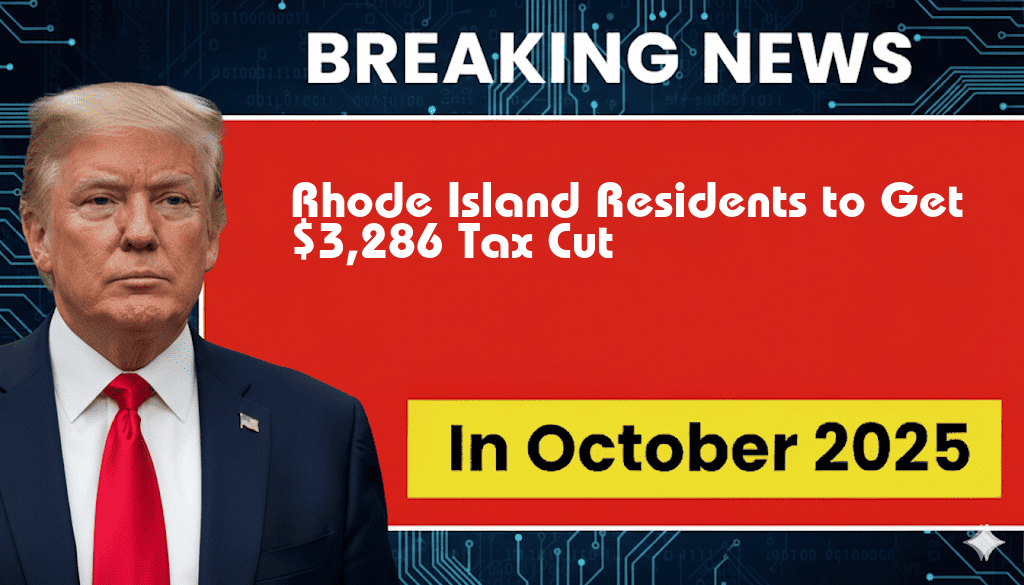Rhode Island Residents Expected to Benefit from $3,286 Tax Cut
Residents of Rhode Island are poised to receive significant financial relief as state lawmakers finalize a tax cut that is projected to save individuals an average of $3,286 annually. This initiative, part of a broader strategy to stimulate the economy and alleviate the financial burden on residents, has garnered bipartisan support in the General Assembly. The tax cut will affect various income brackets and is designed to provide immediate assistance to families, particularly those struggling with rising living costs. As the state navigates post-pandemic recovery, this measure aims to bolster disposable income and encourage consumer spending, ultimately benefiting local businesses.
Details of the Tax Cut
The proposed tax cut is a result of extensive negotiations and reflects a commitment to fiscal responsibility while addressing the needs of Rhode Island residents. Key components of the tax reform include:
- Reduction in Income Tax Rates: Lower rates will be applied across multiple income brackets, ensuring that the relief is felt by a broad spectrum of taxpayers.
- Increase in the Standard Deduction: The standard deduction will be raised, allowing taxpayers to reduce their taxable income, thereby decreasing their overall tax liability.
- Enhanced Tax Credits: The package includes expanded tax credits for low- and middle-income families, aiming to provide additional support where it is most needed.
Projected Impact on Residents
According to state officials, the average savings of $3,286 is expected to have a meaningful impact on household budgets. For many families, this extra income could be directed towards essential expenses such as:
- Housing costs, including rent and mortgage payments
- Utilities and other essential services
- Healthcare expenses and insurance premiums
- Education-related costs, including tuition and supplies
By easing the financial strain on families, the state aims to foster a more robust economic environment, which could lead to increased consumer spending and investment in local businesses.
Reactions from Lawmakers and Residents
The tax cut has received a mixture of praise and cautious optimism from lawmakers across the political spectrum. Governor Dan McKee has expressed his support for the initiative, stating that it reflects the administration’s commitment to making Rhode Island a more affordable place to live. “This tax cut is a step toward a brighter future for our families,” he said during a recent press conference.
Residents have shared their thoughts on the proposed tax cut, with many expressing relief at the prospect of additional financial support. “It will help us cover the bills and maybe even save a little for our kids’ education,” said Sarah Thompson, a mother of two from Providence. However, some residents remain skeptical about the long-term sustainability of such tax cuts, fearing potential cuts to essential services.
Implementation Timeline
The tax cut is expected to take effect at the start of the upcoming fiscal year, pending final approval from the General Assembly. The Department of Revenue is currently preparing for the changes, ensuring that systems are in place for residents to receive their tax benefits promptly.
Context and Future Outlook
Rhode Island’s decision to implement this tax cut comes amid national discussions about economic recovery and fiscal policy. As states grapple with post-pandemic challenges, many are considering similar measures to support their residents. The Rhode Island tax cut is viewed as a proactive approach to stimulate the economy while addressing the immediate needs of families.
For additional information on the tax cut and its implications, residents can visit the Rhode Island State Government website or consult the latest updates from Forbes.
Conclusion
As Rhode Island prepares to implement this substantial tax cut, residents and stakeholders await its potential impact on the local economy. With an emphasis on supporting families and fostering economic growth, the initiative represents a significant shift in the state’s fiscal policy.
Frequently Asked Questions
What is the total amount of the tax cut for Rhode Island residents?
The total amount of the tax cut for Rhode Island residents is $3,286.
Who will benefit from the tax cut?
The tax cut will benefit a wide range of Rhode Island residents, including individuals and families across various income levels.
When will the tax cut take effect?
The tax cut is expected to take effect in the upcoming fiscal year, providing immediate relief to Rhode Island residents.
What are the expected uses of the tax cut savings?
Many Rhode Island residents are expected to use the savings from the tax cut for essential expenses such as housing, education, and healthcare.
How does this tax cut compare to previous tax initiatives in Rhode Island?
This tax cut represents a significant reduction compared to previous tax initiatives, aiming to provide more substantial financial relief to Rhode Island residents.

Leave a Reply